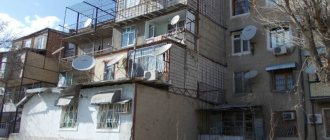Home » Tenant » Do tenants pay for major repairs?
October 24, 2020 No comments
Key Concepts
The main parties to a lease agreement are the lessor and the lessee. Whereas the object of the agreement is an apartment that is in an appropriate condition for living.
It is noteworthy that the living area of the apartment must necessarily comply with the standards that were determined by federal regulations.
The characteristics of the object are considered as an important condition for the agreement of the participants.
List of responsibilities of the parties
Such responsibilities are determined by Russian legislation and the social rent agreement.
We list the most important of them:
| Maintaining order | cleanliness of living space, as well as common property of an apartment building |
| Maintenance of a residential apartment | equipment that is in it in appropriate condition, guaranteeing their safety. If defects or breakdowns are identified, the tenant undertakes to eliminate them by notifying the management office (as required), as well as the lessor |
| Compliance with basic principles | use of living space pre-established by Decree of the Russian Government No. 25 |
| Notice to the landlord | about any changes in separate conditions affecting the tenant’s right to occupy the premises in accordance with the social tenancy agreement |
| Transfer within the approved time frame | rent, as well as payments for housing and communal services |
| Participation in implementation | ongoing repair work |
| Use of living space | for its intended purpose |
As for the obligations associated with the implementation of current repairs, in this case a note is provided on the list of works that the tenant undertakes to perform, in particular, painting, whitewashing, wallpapering ceilings, walls, etc.
If there is a need to carry out other work related to the breakdown of certain structures of the common property or if a defect was discovered after a major overhaul, such work is carried out at the expense of the lessor.
Who pays
The one who is considered its owner is the municipality. Should the tenant pay for such repairs? This is not his problem (Article 154 of the Housing Code). The fee required from residents of state “premises” includes payment for:
- for hiring;
- payment for maintenance and repairs of the house;
- Housing and communal services (gas, water supply, problems with garbage).
- Remember, contrary to the popular belief of some not-so-savvy citizens, the category of housing services does not include major repairs! This is a separate section that can only be applied to premises owners. So you found out at whose expense the repairs are being carried out in a municipal apartment.
ATTENTION! Residents of emergency buildings that are subject to demolition or complete renovation do not pay contributions for major repairs, but if the building was recognized as such after being included in the major repair program, then the money from the fund will be used for the purposes of demolition or reconstruction.
Payment for housing and communal services
Utility bills can be paid in the following ways:
| In accordance with consumption standards | which are determined by local government structures |
| According to the quantity consumed | installed using personal metering devices |
Provided that the utility service was provided intermittently or was of inadequate quality, its cost is reduced several times. This fact has been determined by the Russian Government.
If funds for rent and utilities have not been transferred for six months, this is considered a valid reason for terminating the social rent agreement.
Only a judicial authority has the right to decide to terminate the contract.
What is included in housing and communal services
According to the current standards of the Russian housing complex, utilities include fees for:
- drainage;
- solid heating oil, gas;
- consumption of thermal and electrical energy;
- cold, hot water supply.
Closing an account
Should the tenant pay for major repairs? No, you shouldn't. If you occupy space under a social rental contract, you can simply ignore the receipts. But it would be better if you contact the management organization with a request to solve the problem.
Read more: Salary of a music director in kindergarten 2018
We can come to the conclusion that the cost of such repairs does not fall on the shoulders of the tenants; the owners pay only for what is specified in the contract.
IMPORTANT! Each subject of Russia adopts its own regulatory act, which controls the procedure for paying for major repairs of an apartment building based on the requirements stipulated by housing and communal services and Federal Law No. 185-FZ.
Is the tenant required to pay for major repairs?
According to the terms of the social tenancy agreement, current repairs in the apartment are carried out at the expense of the tenant, while major repairs are carried out at the expense of the landlord.
In other words, the apartment owners transfer funds for him. For example, a person who has privatized a living space pays money towards planned major repairs.
Specifics of renting a house
Similar rules are provided if the tenant occupies a private house that is in municipal ownership. In the situation under consideration, the municipality undertakes to carry out major repairs.
Legislative regulation
The law states that the tenant is obliged to bear the costs solely for carrying out routine repairs.
This means that if he receives receipts requiring him to transfer money for capital repairs, he has the right not to pay them.
Such actions are qualified as a violation of the standards of the Housing Code of the Russian Federation and the Civil Code of the Russian Federation.
What is a contribution for major home repairs?
Since December 2012, Law No. 271-FZ has been in force in Russia , according to which homeowners in an apartment building (more than three) will be charged a fee for major home repairs.
The contribution, as well as the receipt for payment of utility bills, comes to the mailbox. Its size depends on the subject of the Russian Federation in which the residential premises are located, as well as on its type and area.
This was necessary because the number of houses in disrepair or dilapidated condition throughout Russia has sharply increased, and government programs are not able to fully pay for their restoration.
Funds collected from owners are sent to a special capital improvement fund and will be added to existing programs.
Resolving the issue in court
If there are unsubstantiated complaints related to the payment of capital repairs, the tenant has the right to initiate an appeal to the court.
As a rule, conflict situations arise for the reason that it is extremely difficult to distinguish between major and current repairs.
In such conditions, it is worth relying on the Methodological Instructions, which preset a list of works classified as both the first and second types.
What to do if a tenant does not pay rent on time, see here.
Video: How not to pay for major repairs. Instructions
(No Ratings Yet)
Fee for major repairs of a municipal apartment
Relatively recently, the government adopted a law on major repairs, which did not please property owners. At the same time, the question arises whether the tenant should pay for major repairs if the apartment is not fully owned. Let's look at this issue in this article.
Housing Payment Law
It won’t work to pay for anything at all; they don’t provide citizens with a single apartment for free. Therefore, you will have to pay for the maintenance and current repairs of common property, as stated in Article 678 of the Civil Code of the Russian Federation.
It says that tenants must use rented municipal housing only for living, while maintaining it in proper condition . They cannot organize various redevelopments without the consent of the landlord. They are also obliged to pay for the rental of residential premises within the specified time frame. Unless otherwise specified in the contract, they must pay the fee themselves.
At the same time, to the question whether the tenant is obliged to pay for major repairs if the apartment is owned, the answer is yes. According to Articles 158 and 169 of the Housing Code, who owns the premises, that is, the tenant, pays for the work. Then the question arises: in the case when the apartment is not privatized, who will pay for major repairs?
Tenants do not make contributions towards capital repairs of public premises, because this is the responsibility of the owners, represented by the municipality or the landlord.
Copyright holders pay for major repairs, and when receipts are received at the tenants’ address, they must be redirected to the apartment owner, at whose expense such work is paid.
At the same time, you need to pay for premises that are subject to repair - both residential and public, and uninhabited, they are included in the program.
Payment for major repairs
So, who pays for future major repairs if the apartment is municipal? This must be done by the owner of the non-privatized apartment, that is, the municipality. The tenant is not obliged to do this, since he is not the owner and, according to Article 154 of the Housing Code, does not bear any obligations for such work. The payment for housing and communal services includes only the following items:
- for rent of municipal premises;
- for maintenance and ongoing repair work inside the apartment;
- for gas, water, garbage removal and other utilities.
Therefore, paying for major repairs in no way falls on the shoulders of employers , although many are sure that it is necessary to pay. No, only owners of residential premises need to make contributions to the fund for the work being carried out. But in some cases, the differences between current and major repairs are quite illusory, and not only owners, but also tenants have to pay for such work.
Responsibilities of the employer
The main responsibilities of the tenant are payment for received utilities on time and maintenance of the premises. However, he does not pay property taxes.
In addition, the tenant is obliged to use the rented premises only for its intended purpose, and he must keep it in good condition. It follows from this that he is obliged to carry out routine repairs on time, to prevent dilapidation and damage to the living space. Similar works include:
- painting the ceiling, doors and windows;
- wallpapering walls;
- painting batteries and pipes.
If the doors and windows become unusable, the tenant is obliged to replace them with new and serviceable ones. Also, if necessary, it is necessary to repair electrical, gas wiring and other communications. To do this, you need to call professional specialists. Redevelopment work on the premises without the consent of the landlord is prohibited. But work on common property falls on the owner, who must pay for it, that is, this is the responsibility of the public service.
If bills are received to pay for major repairs for a tenant, they must be sent to the owner of the premises. When such receipts are received by social rented tenants, there is no need to pay a fee, but it is worth contacting the Management Company, which will sort out such a mistake, because paying for major repairs is the responsibility of only the owners.
Calculation of contributions
Their sizes vary from place to place. The amount is directly dependent on the deterioration of the house and the presence of an elevator system. From this it is clear that in dilapidated Khrushchev and Stalin buildings, major repairs will be more expensive than in Brezhnev panel houses.
All work is carried out only within the established time frame, which depends on many factors:
- age of the building;
- money collected by the owners;
- date of the last capital work carried out.
I live in a municipal apartment. Do I have to pay fees for major repairs?
Under the appropriate agreement, those in need are provided with residential premises from the state or municipal fund for use. The tenant is obliged to pay rent and utility bills on time, use the housing for its intended purpose and keep it in order.
Keeping it in order means not only complying with sanitary and hygienic standards, but also carrying out routine repairs. Whitewashing, wallpapering, painting walls and floors, replacing windows, doors, wiring and other minor repairs - all this relates to routine repairs and is carried out at the expense of the tenant.
Such repairs also include more “serious” work: plastering walls in the entrance, repairing a pipeline, etc. As a rule, the owner draws up a plan and schedule for ongoing repair work for a particular house.
Tenants are introduced to them, and the fee is included in the utility bill.
Replacement of windows in a municipal apartment, major repairs of municipal housing - who should pay
It is no secret that residential real estate, be it an apartment or a house, must be maintained, taxes must be paid, funds must be invested in maintaining it in good condition, and repairs (current and major). Russian legislation, just like foreign legislation, places the burden of maintaining private property on the one who is its owner, that is, the rule is that whose apartment pays.
Municipal apartment: rights and obligations of residents
Despite the housing privatization program, which has been going on in the Russian Federation for decades, quite a lot of apartments are still owned by municipalities (municipal housing).
There are several types of such apartments:
- Provided housing to those in need on general terms under a social tenancy agreement;
- Provided to persons who, for some reason, are forced to alienate their residential premises to the municipality;
- Reserve housing, owned by municipal authorities, provided to citizens for temporary residence for up to two years (for example, during the repair of emergency housing, etc.);
- Municipal real estate provided to civil servants (municipal employees) for the duration of their duties.
The majority of municipal housing, of course, consists of apartments transferred for use to citizens for hire. In accordance with the Civil and Housing Codes, social rental agreements are concluded between individual citizens and owner municipalities, and apartments are transferred for temporary use.
Families and citizens living on social rent are not the owners of the apartment and do not have the right to bequeath, sell, or inherit it; otherwise, the list of rights of tenants is quite wide. These rights are defined in Art. 154
Housing Code and include:
- Possibility to move other people into the apartment (taking into account the standard living space per person). At the same time, children and spouses can be accommodated (registered) without regard to such a standard.
- Sublease an apartment (or part of it), that is, let in tenants (tenants) on a contractual basis in accordance with civil law.
- Allow temporary residents to live in the apartment.
- Require the homeowner (municipal) to carry out timely major repairs, participate in the maintenance of common property and the proper provision of utilities.
Tenants may have other rights provided for both in the Civil Code of the Russian Federation and in the rental agreement itself, and also have a number of responsibilities:
- use the apartment only for its intended purpose;
- do routine repairs;
- maintain the normal condition of the apartment;
- pay for housing itself and utilities;
- promptly inform the homeowner about changes in the grounds and circumstances related to the apartment rental agreement.
Additional responsibilities of the employer in accordance with Art. 678 of the Civil Code of the Russian Federation is to ensure the safety of the apartment, carrying out reconstruction/rearrangement only with the permission of the owner. The need for timely payments for housing is especially emphasized.
Who should change windows in a municipal apartment?
The volume of municipal housing rented out by the owner under social tenancy agreements is quite large, and most of it is located in houses built more than a decade ago. Accordingly, such houses require not only current or major repairs, but also other improvements: replacement of entrance doors, roof repairs, replacement of windows.
You need to know that according to the “Regulations on the organization and implementation of reconstruction, repair and maintenance of residential buildings, public utility and social-cultural facilities” VSN 58-88, the service life of windows and balcony fillings before their replacement (overhaul) is 40 years (for wooden ) or 50 years (for metal) structures.
If the time has come to replace the windows in the entrances of an apartment building (that is, common property belonging to all owners of the house), then the municipality, as one of the owners of the apartment building, will pay for new double-glazed windows in proportion to its share in the property of the house (for example, if 1/3 of the apartments are non-privatized and are municipal, and 2/3 are private, then a third of the total amount will be paid at the expense of the municipality).
It is more difficult to solve the problem if it is necessary to replace windows in a municipal apartment (a number of apartments). Decree of the Government of the Russian Federation No. 491 of August 13, 2006. classified the windows located inside the apartments as the property of the owner, and not the common property of the house. At the same time, windows are neither an element of engineering equipment nor an element of landscaping, and according to Art. 210 of the Civil Code of the Russian Federation, the owner, the municipality, is responsible for them, as for private property.
If the apartment is not privatized, do I have to pay for major repairs?
Info
If the tenant uses privatized housing, then, according to the terms of the commercial lease agreement, he is also not obliged to transfer funds for the overhaul of the entire house. Article 678 of the Civil Code provides for tenants the obligation to maintain rented housing in proper condition.
Tenants cannot carry out redevelopment and reconstruction without the consent of the owner. The employer cannot be required to make regular contributions to pay for major repairs.
What are the consequences? It costs the owner of a privatized apartment to pay for major repairs if he doesn’t want any trouble and wants to live in a livable house. In essence, citizens pay not to the management company, but to themselves.








